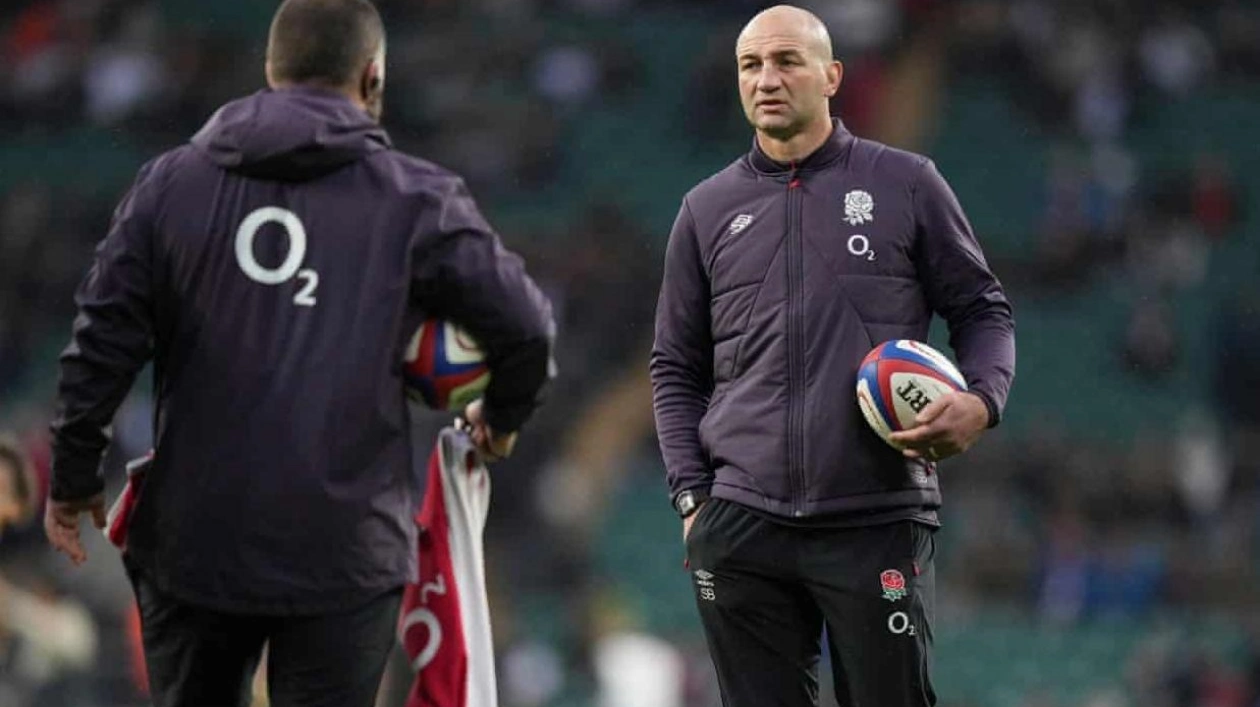What could England have hoped for from their final Test of the year? Likely something akin to this. Yet, this was the proverbial game they couldn't win. It's easy, as it always is with England, to cry crisis at every turn, especially this autumn as their losing streak seemed endless. But it's not far-fetched to note that a minor tweak to what actually transpired might have painted a much brighter picture. That missed post at the end of the All Blacks game, that late drama against Australia – adjust those and this campaign could have been seen as a success.
The stubborn will argue that victory is everything in international rugby, which is fine, but such a binary view ignores the reality that international rugby is more competitive than ever. South Africa is clearly the best team right now, yet even they have lost twice this year, including once at home. Meanwhile, England should be beating Australia, but a momentary lapse against a team like that will be harshly punished.
England were never going to lose this one. How Steve Borthwick must wish they had played Japan at the start of the month instead of the All Blacks. Instead of a consolation victory long after the main campaign had passed, this could have served as an encouraging warm-up, resetting the consecutive defeats tally and easing pressure, which might have helped, for instance, a late penalty hold its line in the next match.
We all must work with what we are given. This is another way of embracing the old sports cliche: we can only play what is in front of us. We should also remember what was in front of England here. Japan brought 211 caps' worth of experience, placing them at the very greenest end of Test rugby's experience spectrum. The script might have weighed heavily with the threat of Storm Eddie, but Japan's coach, so familiar in these parts, was not here to torment Borthwick, his former protege.
Eddie Jones is a disruptor. It became increasingly clear during his unusually long tenure with England that without disruption, he is lost. Before his England stint, the longest he had stayed in one job was four years. One could argue his biggest mistake with England was trying to convince us – and himself – that he had to rebuild an England team he had just taken to a World Cup final in 2019, the youngest side to do so in the professional era. But it seems he couldn't help himself.
Casual observers may think of Japan as the exhilarating team of the 2015 and 2019 World Cups. Whatever the status of the 2023 squad, clearly less of a threat than their immediate predecessors, there was never any doubt when Jones came in that he would consider this a rebuild and then some. Sure enough, he has cleared the decks, which must put into context England's victory. Given England's set-piece dominance, winning almost as much lineout ball on Japan's throw as Japan managed to win themselves, one might argue a nine-try win should be the least of their expectations. More concerning would be the two tries conceded, exposing the ongoing kink in the defensive structure, which has quickly morphed from a mooted strength under the previous defence coach, Felix Jones, to a liability that has cost England more than just those two tries.
The new defence coach, Joe El-Abd, will now have time to develop a system more his own than the one he has inherited. Meanwhile, the positives of this campaign may percolate further too – the two Smiths at fly-half, the Northampton triumvirate in the back three, who combined so sweetly here and elsewhere this autumn. What is lacking is a hardness, a ruthlessness, but such qualities are hard to find in an international arena populated by talented teams who can all beat each other. One might argue the only side who truly boasts that ruthlessness are, yes, those South Africans. That is why they are the best in the world, and why everyone else seems to be perpetually on the brink of a crisis. England included. England especially.
Source link: https://www.theguardian.com






